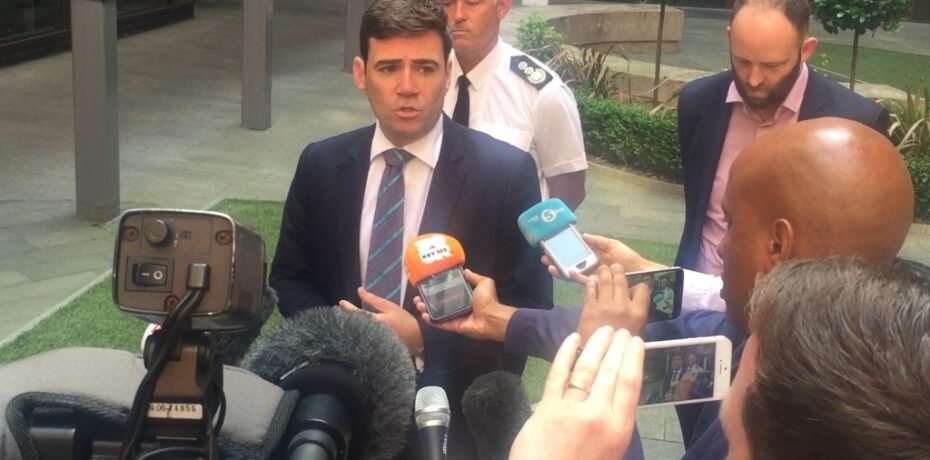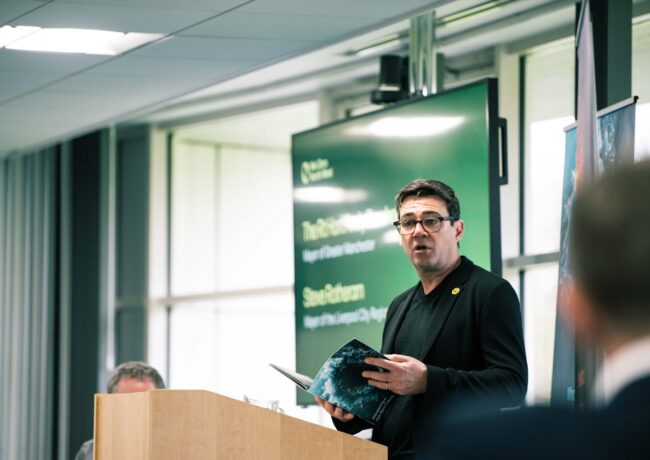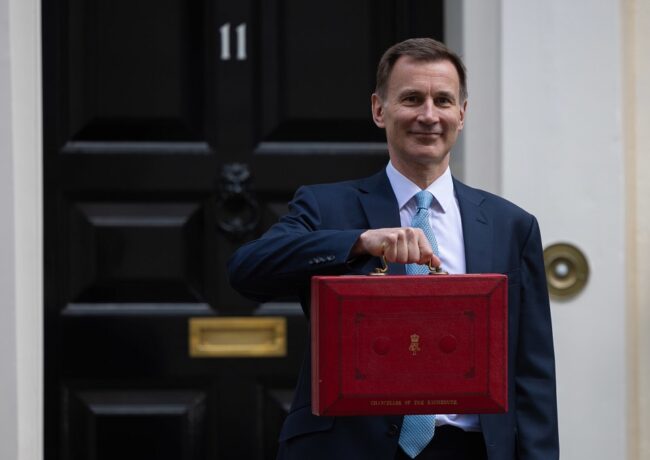Commentary
COMMENT | The time for economic delivery
How did a turbulent opening to the year affect the political landscape in the sub-regions of the North West? Iain Roberts assesses the state of play as the second half begins.
Greater Manchester
Elected in May with 63% of the vote, Greater Manchester Mayor Andy Burnham has impressed with his big tent approach – bring everybody in.
The thrust in Greater Manchester over the coming months will be for inclusive growth. As newly appointed chief executive of the combined authority, Eamonn Boylan, explains: “Our aim is to direct resources and programmes to bring about inclusive growth and ensure that the economic success of Greater Manchester reaches the widest possible number of people. Inclusive growth has been discussed endlessly in meeting rooms around the country, now is the time for Greater Manchester to lead the way in delivering.”
The challenge facing Burnham and Boylan should not be under-estimated. Many of Greater Manchester’s 2.7 million residents, especially across the North of the conurbation, are concerned that growth means shiny new office blocks and industrial units in the city centre, airport, Salford Quays and Trafford Park with precious little for the Northern boroughs. Add to that the figure of a £5bn annual shortfall between the amount Greater Manchester contributes in tax to the public purse and the amount it takes out in benefits and services shows the scale of the economic task ahead as the city region aims to become fiscally self-sufficient.
As large as Burnham’s tent is, bringing the public along with the Greater Manchester project will remain a tough challenge. The Mayor has promised a “radical rewrite” of the Greater Manchester Spatial Framework, the 20-year plan for additional housing, offices and industrial units. While few oppose more jobs, opposition to large-scale building on the Green Belt has been extremely vocal. Burnham says he wants to see less urban sprawl and more built on brownfield sites in town centres. Rewriting GMSF will inevitably delay its course but Burnham told delegates at the Northern Transport Summit last week to expect a revised draft later this year, earlier than many feared.
There were no local elections in Greater Manchester this year, but 2018 will see every one of the 96 Manchester City seats up for grabs, along with a third of seats in the other nine authorities.
The eventful first half also saw the departure of Sir Howard Bernstein from the city council. It’s too soon to tell if his successor, Joanne Roney, will be able to fill perhaps the biggest boots in local government and build as effective a working relationship with Sir Richard Leese as her predecessor.
Liverpool City Region
Progress on building a functioning combined authority is being made, but the strains are showing. Liverpool City Mayor Joe Anderson recently refused to attend Metro Mayor Steve Rotheram’s cabinet meetings and the two Merseyside big beasts definitely don’t see eye-to-eye. Liverpool’s problems are not improved by the recent arrest of chief executive Ged Fitzgerald (also acting as chief exec of the combined authority) on suspicion of perverting the course of justice and intimidating witnesses.
Rotheram’s manifesto spoke of needing “a Mayor to provide joined-up government, and a single influential voice on the national and world stage.” While he is clearly ambitious for the City Region to punch above its weight as an economic power-house, the Combined Authority model passed on from Manchester makes that a tall order. If the leader of the biggest and most powerful council in the area is unwilling to sit at the same table as the Mayor, progress may be limited.
Cheshire
Cheshire East Council’s leadership breathed a sigh of relief in June as their Local Plan was approved. It ends years of uncertainty, though plans to build thousands of new homes in the North and South of the county will be no less controversial with locals just because the land allocations are signed off. The Council is also without a working chief executive, Mike Suarez having been suspended on full pay. The reason for his suspension remains under wraps.
While Cheshire East remains true blue, Cheshire West & Chester sits on a political knife-edge with the ruling Labour group having a majority of just one seat. With all-up elections not due until 2019, a single by-election could unseat leader Cllr Samantha Dixon. Labour may have reason to be quietly confident though: voters often use local by-elections to give the party in government nationally a kick and with Labour’s current poll ratings and a by-election success, strengthening their hold on Blacon ward in April, the party will be hopeful of holding on.
Plans for a combined authority taking in both the Cheshire councils plus Warrington look to be dead in the water.
Lancashire
It seems like an age ago now, but back in early May, Theresa May was wildly popular and the snap General Election helped the Conservatives in local elections up and down the country. Lancashire was one such area, where the Tories gained control. (Previously it had been No Overall Control with Labour as the largest party).
Lancashire has two-tier local authorities and Preston, South Ribble and Lancashire are busy co-ordinating their £420m City Deal, aiming to grow the local economy and build more homes, with the promise of 20,000 new jobs along with improvements to roads, schools, parks and health facilities. Whether the lure of a billion pounds of economic growth will persuade residents to accept all the new housing, particularly in South Ribble, remains to be seen.
Cumbria
Although the Conservatives are the largest party following May’s elections, no party has an overall majority and the existing Labour/Lib Dem coalition looks set to continue running the council. Like both Lancashire and Cheshire, any dreams of a Combined Authority deal have drifted away. The mood music from the Government not only favours urban Combined Authorities over rural, but also frowns on any that might be hard work to set up. Perhaps a sensible choice when resources are being siphoned into dealing with Brexit!
Given the Labour surge, a surprise on General Election night was the Conservatives further increasing their majority in Copeland, a traditionally Labour seat.
Energy is one of Cumbria’s key industries, with nuclear dominating economically. Cumbria will be looking to diversify its energy portfolio in coming years and invest more in renewables.
Iain Roberts is senior account manager at Remarkable Group, political engagement public consultation consultancy.





The divisions in GM are Britain in miniature. There needs to be huge investment in the Northern boroughs,particularly Oldham and Rochdale,which have been left to rot by Westminster,must be the priority. This obsession with preserving the Green belt at all costs,needs to stop too.Everywhere was Green belt once and to attract the prosperous people to these towns,some of these locals need to stop being so precious about a few fields,they seem to think look like the Lake District.This tedious Nimbyism holds this country back.
By Elephant